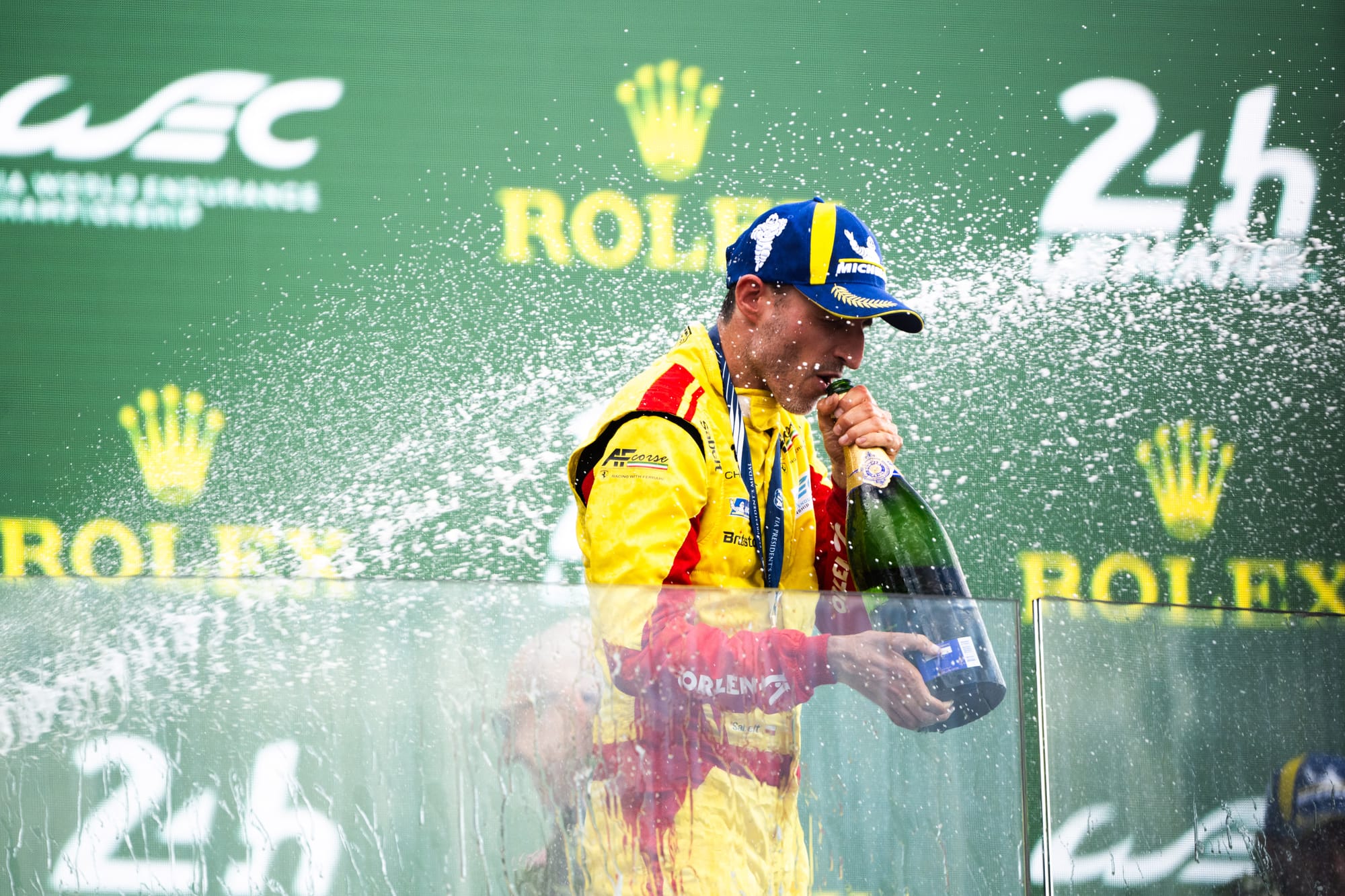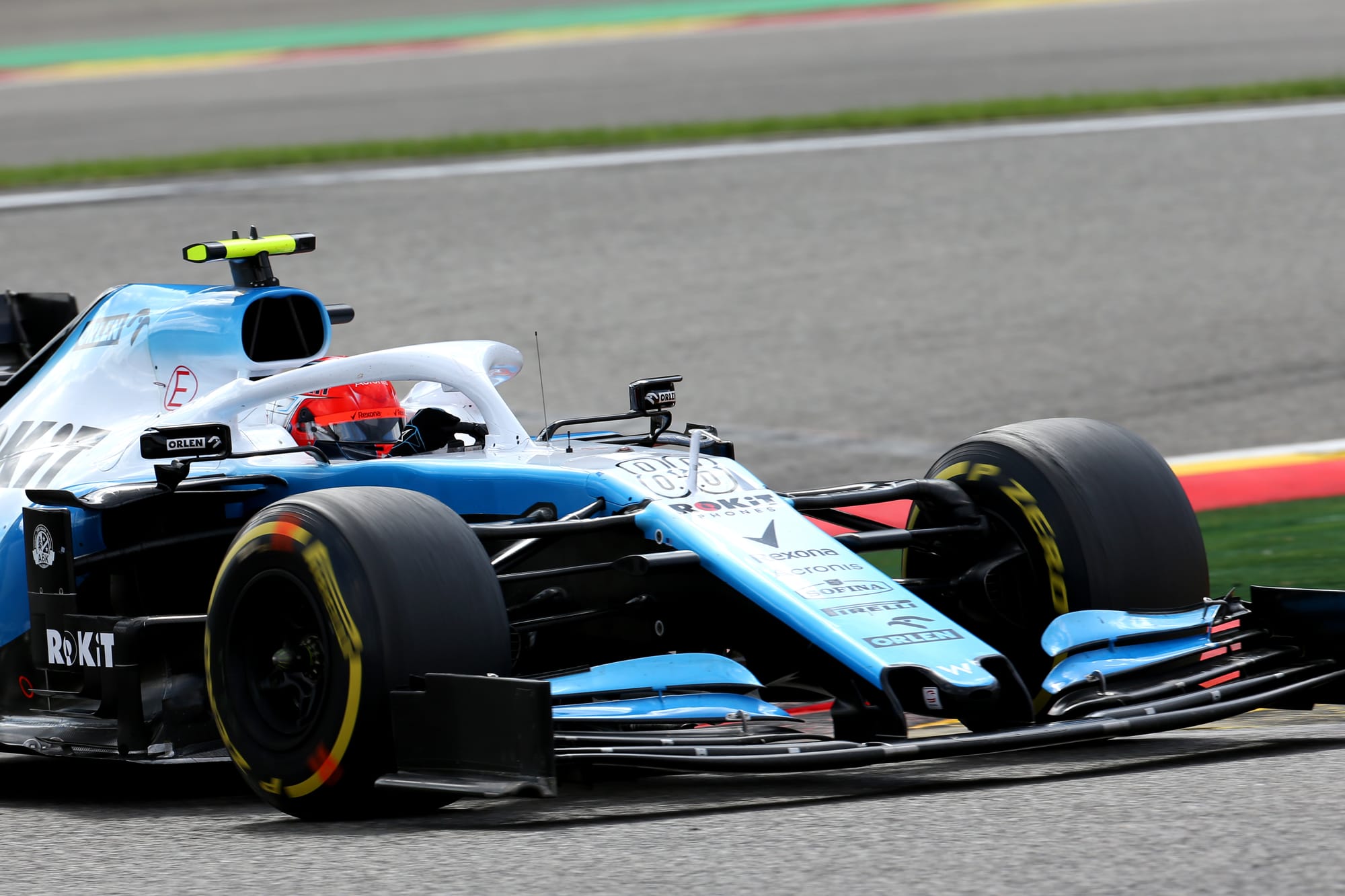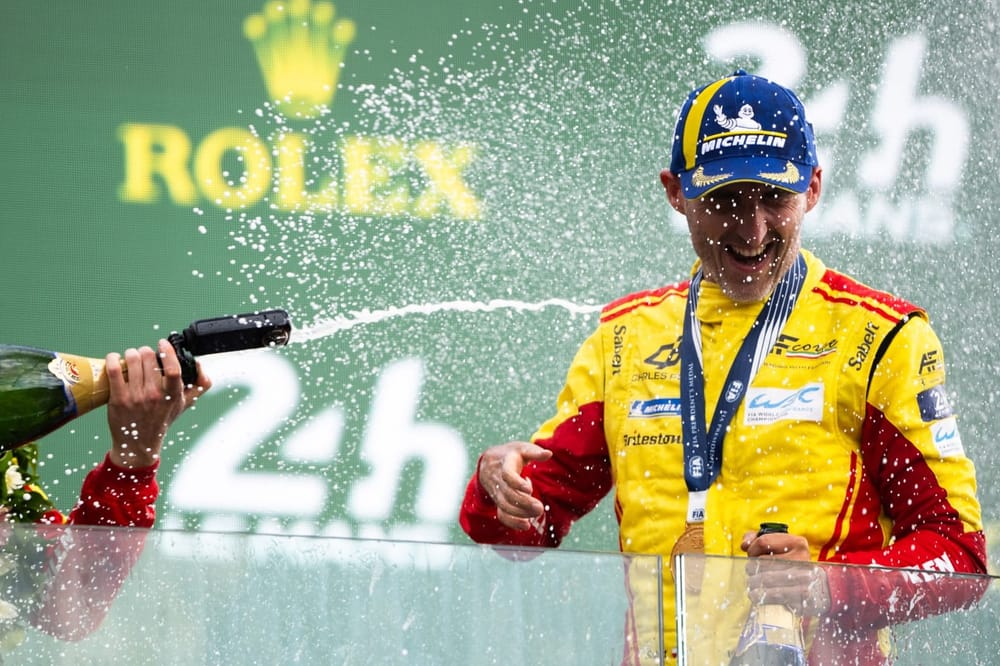The Le Mans 24 Hours is a team effort, but it's impossible for me not to see this as Robert Kubica's win.
He'll play it down, but given what he has been through since his horrific rallying accident in 2011 and the limitations he has as a result in his right arm and hand - he once told me he had to learn to drive "70% left-handed" for his Formula 1 comeback - it's a sensational story.
And the stats from Le Mans back that up too. Kubica drove 166 of the 387 laps he and race-winning AF Corse Ferrari team-mates Ye Yifei and Phil Hanson completed, or 43% of their race. He did 59 of those during a quintuple stint to the finish, and was without a functioning drinks bottle for much of that run.
Please welcome your 2025 LE MANS WINNERS: AF CORSE!! #WEC #LeMans24 #Ferrari pic.twitter.com/r00nKCtbrH
— FIA World Endurance Championship (@FIAWEC) June 15, 2025
Kubica is driven, determined, all about racing and pushes his teams hard. He had a remarkable F1 career taken away from him in 2011, with a Ferrari move and surely many wins in his future, and for him even to come back into competing in motorsport was an amazing achievement.
Knowing his character, he will have endured dark days during his long recovery and through multiple operations and not to have lost that competitive drive is testament to his strength of character.

Back in 2014, I headed down to Tuscany the day after the Monaco Grand Prix for a cover story for Autosport Magazine. Then, Kubica was competing in rallying but had yet to return to a circuit racing event since his crash. What he told me always stayed with me because it reflected how haunted he felt by what he had lost. It carried with it a hint of the mental anguish he must have endured, heightened when he tried to return to the track as a guest.
"Last year [2013] I was competing in a German rally so I tested the week before," said Kubica. "There was a DTM race at Nurburgring. I had a plan to go and see the race. I called Toto [Wolff, Mercedes motorsport boss] to ask if I could come and he said, 'No problem'.
"On Sunday morning I left Trier and I started feeling, 'I should go...I should not go'. So I went to Nurburgring, but half an hour before, when I started driving around the area and memories came back, I texted Toto and asked to meet at his hotel. But that was next to the circuit and when I got there Auto GP was on track.
"When I heard the sound [of the cars] I met Toto in the hotel for breakfast and then I went back to Trier. I suddenly got a feeling that I didn't like."
Kubica did eventually go back to the circuits and started winning - becoming a champion in the European Le Mans Series and winning at world championship level in the World Endurance Championship (including now in the biggest race of all). He even, improbably, returned to F1, something that once seemed an impossibility.

It probably was impossible, just as coming back to winning one of the most competitive Le Mans 24 Hours was. But that's Kubica the great racing driver: he does the impossible - it's just that what happened on Sunday February 6 2011 changed how that manifested itself and his life forever.
This is not the Ferrari win Kubica would've envisaged back in 2011 when, prior to that devastating rallying crash, he had an agreement in place to move to the Scuderia for the 2012 F1 season. But it's one he undoubtedly deserves.
He'll downplay his journey - that's just the kind of character he is - but what he has achieved in his circumstances is one of the most remarkable stories in motorsport history.



